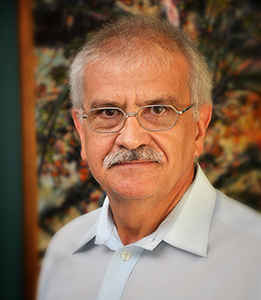Latest News Archive
Please select Category, Year, and then Month to display items
12 October 2020
|
Story Dr Cindé Greyling
|
Photo Supplied
 Exercise and nutrition can work wonders for your mental health – you don’t even have to ‘feel like’ or ‘enjoy’ moving around and eating well for it to work – it does its thing anyway.
Exercise and nutrition can work wonders for your mental health – you don’t even have to ‘feel like’ or ‘enjoy’ moving around and eating well for it to work – it does its thing anyway.
Nowadays, people talk about mental health like it is the common cold – which is good! But do you know what it really means? Being mentally healthy does not only refer to the absence of a mental illness but includes your emotional and social well-being. One would almost want to add physical well-being too, since a healthy body does indeed support a healthy mind. However, since so many people consider themselves ‘mental health experts’, some myths have been sold as truths.
Myth #1 – You are doomed.
Nope. Never. You are never doomed. There is always help. Mental-health therapies range from self-help, talk therapy, medication, to hospitalisation in some cases. Somewhere on this spectrum of treatments, there will be something that works for you. But you must be willing to get the help and do the work. For starters, exercise and nutrition can work wonders – you do not even have to ‘feel like’ or ‘enjoy’ moving around and eating well for it to work – it does its thing anyway.
Myth #2 – It won’t affect you.
It may. Research suggests that one in five people may suffer from a mental illness at some point in their lives. Being well now does not mean that it will stay that way. Biological and environmental factors both impact your mental health. Hopefully not, but at some point, you may experience an event that affects your mental health.
To remain integrated in a community is always beneficial
for anyone suffering from a mental or physical condition.
Myth #3 – Someone struggling with mental health must be left alone.
Hardly! To remain integrated in a community is always beneficial for anyone suffering from a mental or physical condition. You do not need to fix them, but to remain a friend. Continue to invite them, even if they decline. Do not judge, and do not try to understand. Just stay around.
Go and be kind to yourself, and to those around you.
National Department of Health invests R53.5 million in UFS laboratory
2016-02-04

Dr Derek Litthauer
Photo: Supplied |
This year has started off on a high note for Dr Derek Litthauer and his team at the South African National Control Laboratory (NCL) for Biological Products. The National Department of Health has awarded the NCL a contract to the value of R53.5 million to continue testing vaccines for the next three years.
Vaccines are biological medicines used to ensure healthy populations by preventing many diseases. The World Health Organization (WHO) estimates that, worldwide, about 5.2 million children under six years old die annually. Of these deaths, 29% are vaccine preventable. Research has revealed that vaccines prevent about 6 million deaths each year globally. Safe and effective vaccines are essential public health tools, which are strictly regulated internationally. It is the NCL’s responsibility to perform quality control testing on all vaccines to be used on humans in South Africa.
This laboratory, the only one of its kind in Africa, receives samples of vaccines from manufacturers and importers for rigorous evaluation and testing. No vaccine may be used in South Africa without a release certificate issued by the Control Lab, certifying that the vaccine is suitable for human use.
The contract is a commitment to ensuring that only vaccines of the highest quality are used in South Africa.